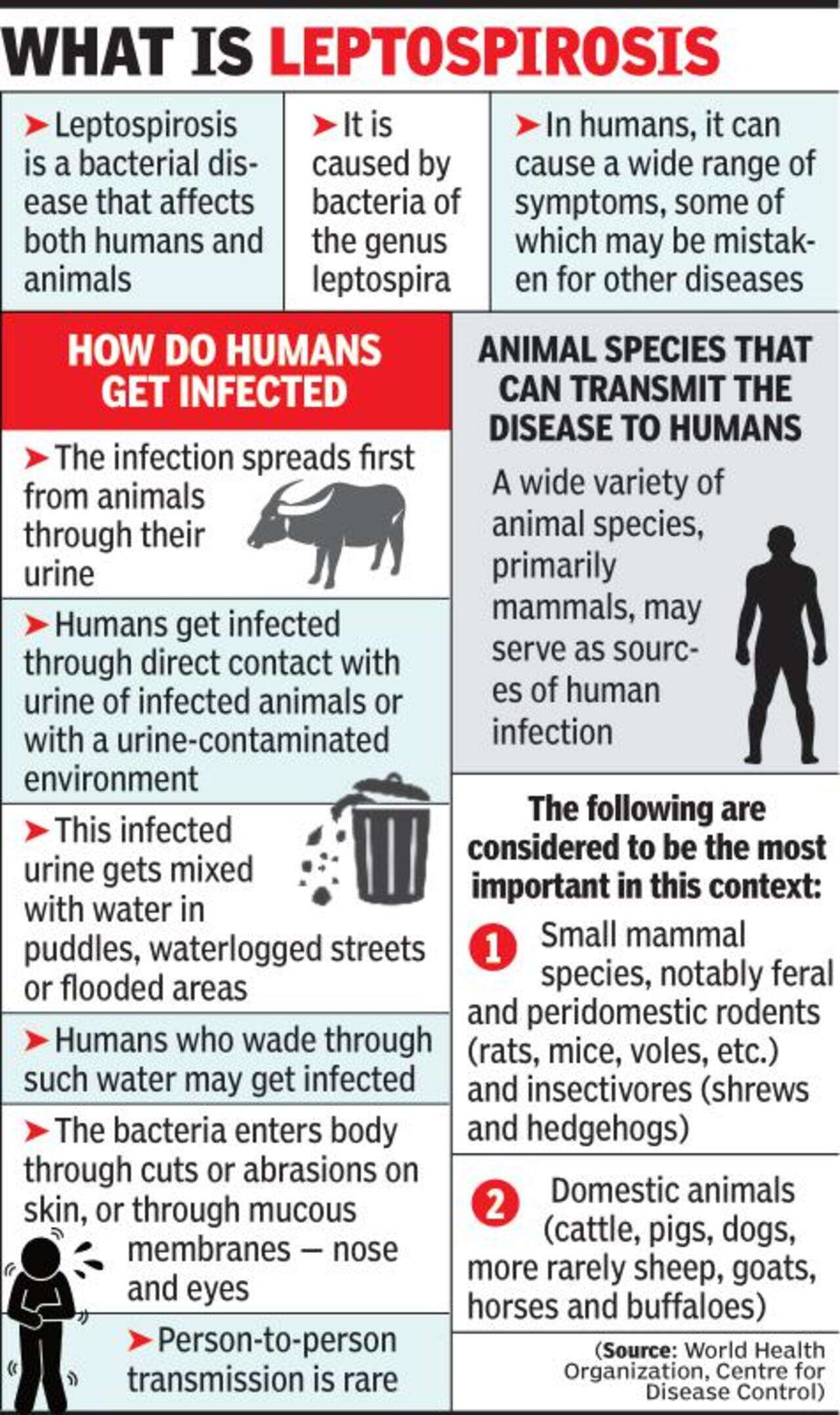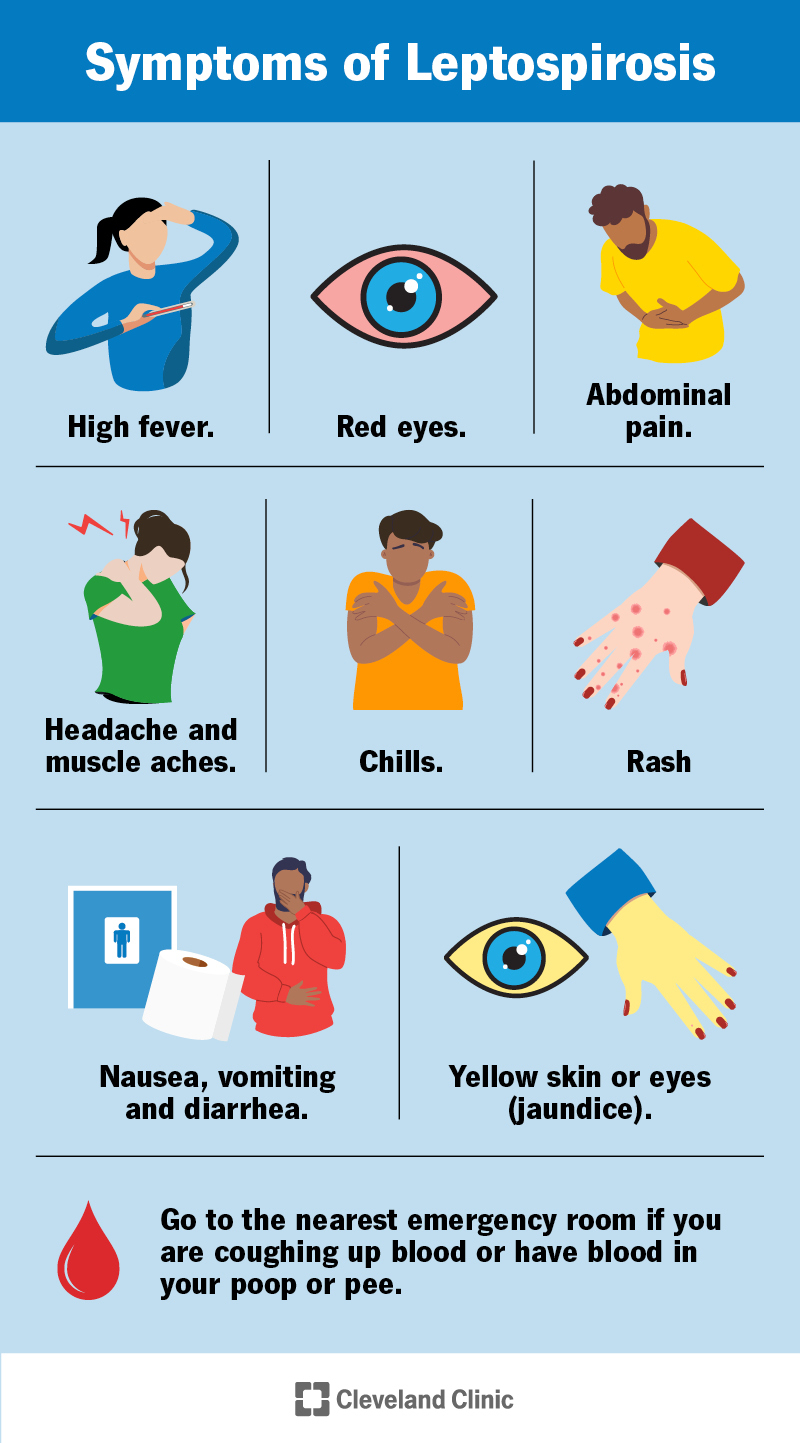LEPTOSPIROSIS

- The common symptoms of leptospirosis include fever, rash, body ache, and vomiting. This can be treated with antibiotics.
- The disease often presents as a flu-like illness with symptoms such as high fever, chills, muscle aches, headache, nausea, vomiting, abdominal pain, and sometimes a skin rash
- However, if leptospirosis is left untreated, it can cause kidney damage and even prove to be fatal

- Leptospirosis is usually transmitted to humans through direct or indirect contact with infected animal urine, contaminated water, or soil.
- Common sources of infection include rodents, cattle, pigs, dogs, and wild animals.
- The bacteria can enter the body through cuts or abrasions on the skin, mucous membranes (such as the eyes, nose, or mouth), or through swallowing contaminated water.
Preventing leptospirosis involves taking certain precautions, especially in high-risk areas. Some preventive measures include:
- Avoiding contact with potentially contaminated water and soil.
- Wearing protective clothing and footwear when working in high-risk environments.
- Keeping living and working areas clean and rodent-free.
- Vaccinating animals, especially in areas where leptospirosis is prevalent.
- Seeking medical attention if flu-like symptoms persist, especially after exposure to possible sources of infection.
|
For Prelims: Viruses, Bacteria, mRNA, Vaccines
For Mains: 1.Viruses are considered obligate intracellular parasites. Elaborate on their replication cycle inside the host cell and the mechanisms they employ to avoid the host's immune response
2.Discuss the significance of bacteria in various ecological processes, including nitrogen fixation and decomposition. How do they contribute to the balance of ecosystems?
|
|
Previous Year Questions
1.Viruses can infect
1.Bacteria
2.Fungi
3.Plants
Select the correct answer given below
A. 1 and 2
B. 3 Only
C. 1 and 3
D. 1, 2 and 3
Answer-D
|




